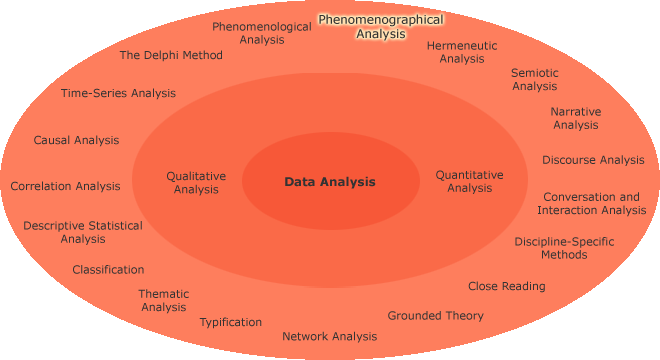Phenomenographical Analysis
Phenomenographical analysis focuses on the various ways people approach experiencing a phenomenon, their ideas and the various ways of thinking about the phenomenon, with the aim of presenting hierarchical relationships. The analysis, unlike phenomenological analysis, does not focus directly on experiences of phenomenon. There are various orientations of phenomenographical analysis which may approach other qualitative methods of analysis. The orientations are, for example: discursive, experimental, naturalistic, hermeneutical and phenomenological phenomenography.
You can use several highly focused analytical methods to assess how other people think about and evaluate phenomena. One of these is the q-method. You ask people to use a certain scale to evaluate statements, which you make to them. The q-method combines both qualitative and quantitative analysis.
Read more on phenomenographical analysis from the links below:

